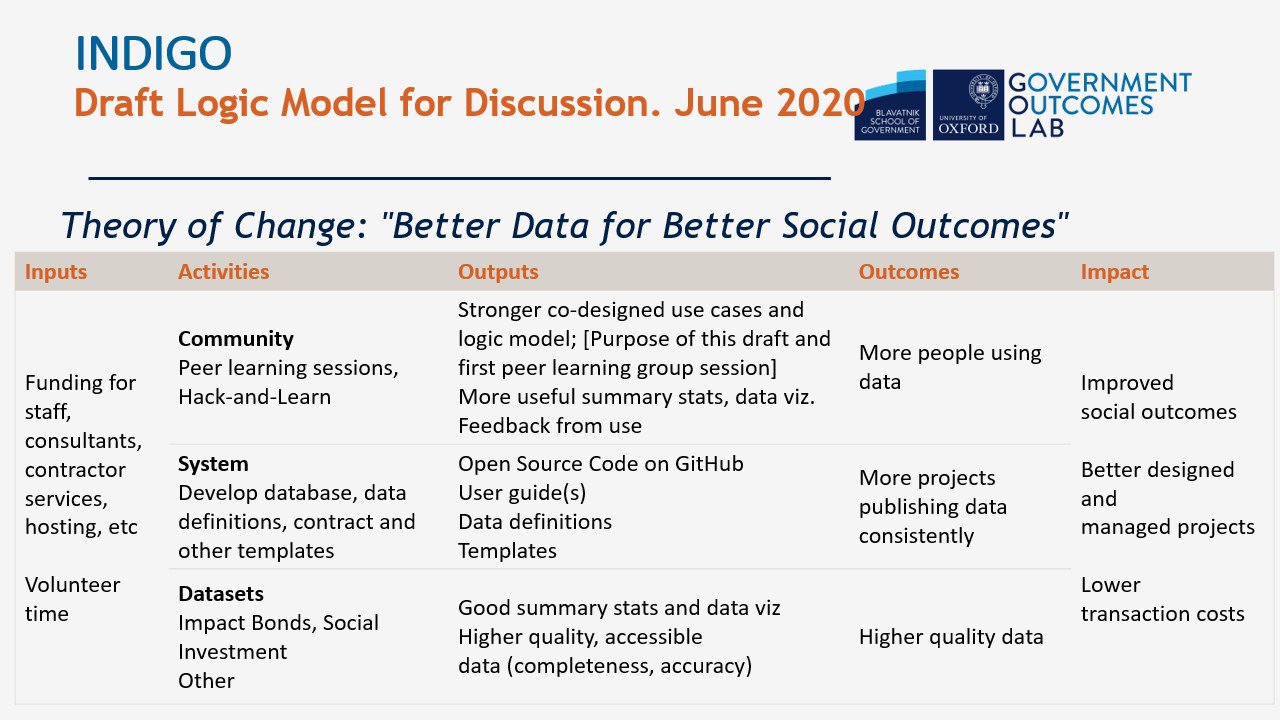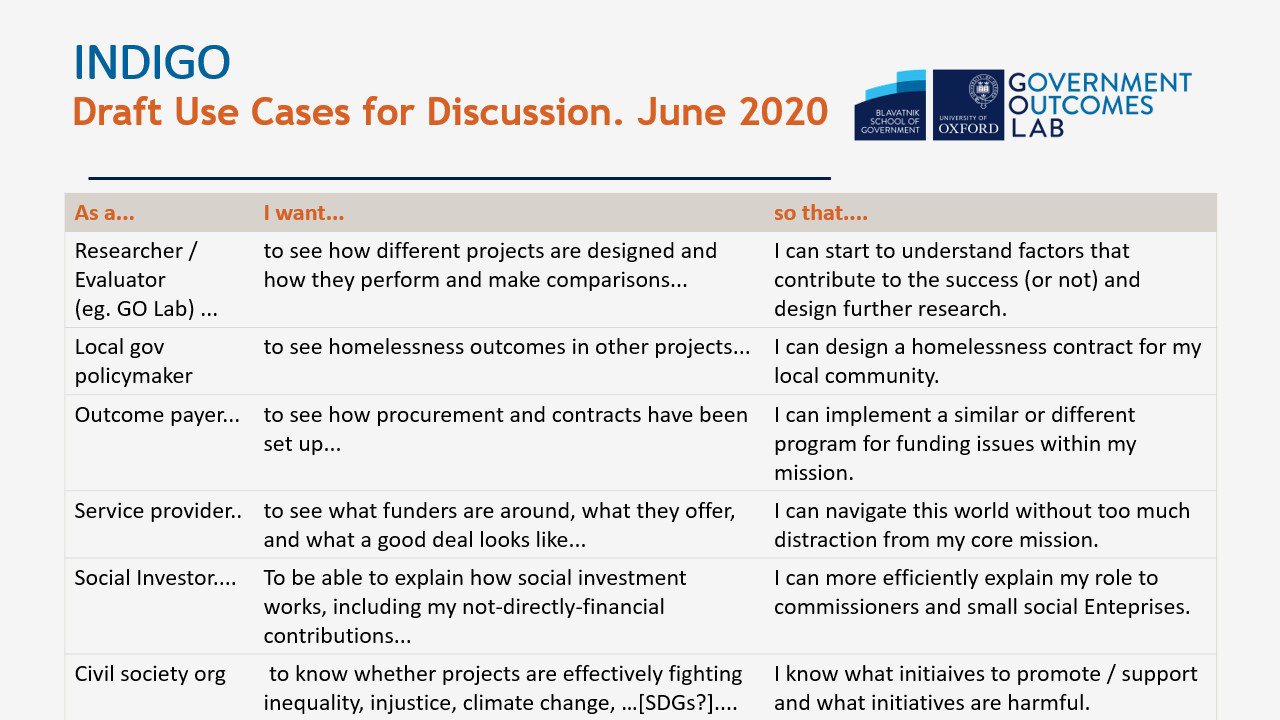INDIGO Peer Learning Group - Quarterly Meeting 1
INDIGO Peer Learning Group - Quarterly Meeting 1
INDIGO is the International Network for Data on Impact and Government Outcomes. This online (Zoom) meeting is for policymakers, civic tech enthusiasts and other actors involved in cross-sector partnerships for better social outcomes. We aspire to better data for better social outcomes. The sessions are chaired by GO Lab Research Director, Eleanor Carter. In this first meeting, we will be discussing INDIGO aspirations and what success looks like.
I. Intro
II. What does success look like?
- 1st Panel: Data User Suggestions
- 2nd Panel: Open Data & Data Standard Bearer Suggestions
II. Announcements & Close
INDIGO Theory of Change - A Draft for Discussion (June 2020)
Here we describe our "theory of change" or "programme logic." It is a simple table describing our aspirations in terms of inputs (resources), activities, outputs, outcomes, and impact. Such a table is sometimes referred to as a "logic model," which suggests something complex, but is actually (deceptively) simple in appearance. As of June 2020, this is a draft for feedback at our June 25th INDIGO Peer Learning Group session.

INDIGO Use Cases - A Draft for Discussion (June 2020)
Below we describe our use cases in a simple table set up to bring clarity to the potential INDIGO user about what they want from INDIGO, and why they want it. Accordingly, the columns are "As a...," I want..." and "so that..." This arrangement is based on an agile software methodology which focuses software development efforts around "user stories." Here we are borrowing this agile method to focus our INDIGO initiative squarely on users and use cases. As the GO Lab, we understand the researcher user well because we are that user. We have varying levels of confidence in our understanding of other users and welcome input. As of June 2020, this is a draft for discussion and improvement at our June 25th INDIGO Peer Learning Group session.
